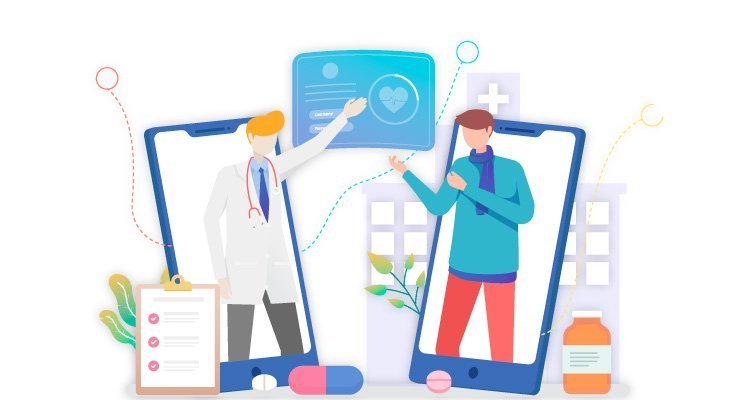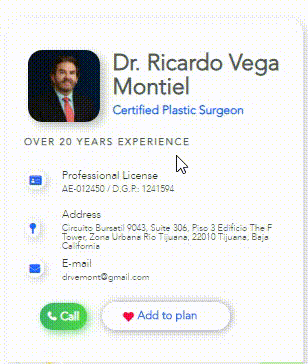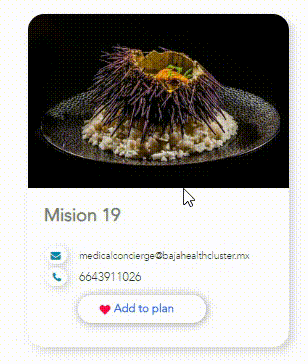Comitiva de Promoción del Sector Salud en Las Vegas, NV USA
El Baja Health Cluster formo parte de la Comitiva de Promoción del Sector Salud que visito Las Vegas, acompañando al...

Who knows you best? Your spouse? Son or daughter? Best friend? If your primary care doctor doesn’t make the list, you could be missing out on one of the most important relationships when it comes to your health and well-being.
A primary care physician is more than just a doctor. Over time, he or she learns the nuances of your medical history, your reaction to medications, your personality, your lifestyle and your treatment preferences.
That intimate knowledge can make a big difference to your health. Studies show that when people’s access to primary care doctors improves, their risk of dying of cancer, heart disease and strokes declines. And Medicare Advantage members with a primary care physician are more likely to benefit from coordinated care and to have a positive health care experience.
“Primary care doctors help you move through the continuum of life,” said Dr. Efrem Castillo, chief medical officer of UnitedHealthcare Medicare & Retirement, who practiced as a primary care physician for 20 years. “As we get older, our needs change and our functional ability changes. It’s nice to have someone who knows you guide you through the health care system as that happens.”
Here are 10 tips on how to choose the right primary care doctor for you.
1. Ask around.
The first step to finding a great doctor: Talk to your family and friends about their great doctors. A recommendation from someone you trust is a great way to identify a highly skilled, helpful physician. But remember: Every person is different. Just because a doctor was perfect for your neighbor or your best friend doesn’t mean that he or she is right for you.
2. Do a quality check.
Chances are you wouldn’t hire someone to make repairs in your home without doing a little research into the quality of their work. So why would you choose a doctor without doing the same?
Look for any information about the quality ratings of specific primary care doctors in the web.
Look for certifications too, doctors also have to keep up with the latest developments in their fields to maintain their certification, so you can be sure they’re giving you up-to-date advice.
3. Place a cold call.
Castillo advises that patients call a potential doctor’s office for a first impression of the practice.
“You can tell a lot by the phone etiquette of the office staff,” Castillo said. “Ask if they’re taking new patients and see how they answer. If they say, ‘The next appointment is in 90 days, have a great day,’ that’s a lot different than saying, ‘He’s really busy, and we always make time for existing patients, so it might take us some time to fit a new patient in.’”
4. Ask about logistics…and consider scheduling an in-person meeting.
Castillo recommends asking questions during that initial call that provide a sense of how the office runs. How does the office handle prescription refills? How do they let you know about test results? Can you email your doctor or schedule appointments online? Will the office call to remind you if you’re overdue for an annual screening or a flu shot?
When Castillo was in practice, some patients would ask for quick in-person conversations before making an appointment. Not all doctors will be able to accommodate such requests, but it doesn’t hurt to ask.
5. Keep your needs in mind.
Every person has unique health needs, and those needs change as people age. Castillo suggests asking your doctor about his or her specialties or areas of interest.
“Some primary care doctors are really good at sports medicine, but if you’re not a serious athlete in your senior years, that may not be helpful to you,” Castillo said. “Some doctors, on the other hand, may have a special interest in diabetes care or have a large population of diabetics in their practice. Those are things to ask when you call.”
And if you have multiple complex medical issues, you may benefit from seeing a geriatrician, Castillo said. Geriatricians specialize in the care of older patients.
6. Look at the bigger picture.
At the first visit, it’s important to make sure your doctor’s philosophy of care lines up with your own. Consider asking these questions: Why did the doctor decide to go into primary care? What is his or her favorite thing about being a doctor? What does he or she wish more patients would do after they leave his or her office? If your doctor’s outlook on patient care meshes nicely with your preferences, you’ll be more likely to follow his or her recommendations in between appointments. So take this information into consideration when deciding whether to stick with a doctor following your first appointment.
7. Avoid culture shock.
Every culture has its own customs, ideas and taboos about medical care, so find a doctor who not only speaks your language, but is sensitive to your cultural and religious convictions.
“In some cultures, it’s very easy to joke around, and in other cultures, that is just not the way you do things,” Castillo said. “It’s important that your doctor is culturally aware.”
8. Trust your gut.
Your primary care doctor is going to be a problem-solver and an important advocate for your health. It’s critical that you trust him or her and feel comfortable asking questions.
The American Academy of Family Physicians recommends that after your first appointment, you ask yourself the following questions:
• Do you feel at ease with this doctor?
• Did you have enough time to ask questions?
• Did he or she answer all your questions?
• Did he or she explain things in a way you understood?
If something seems off, trust your instincts and look for a new doctor, Castillo advised.
“You should be comfortable with your primary care doctor,” Castillo said. “It’s really about what you expect and need. It’s OK to say, ‘This person is not the right fit for me.’”


El Baja Health Cluster formo parte de la Comitiva de Promoción del Sector Salud que visito Las Vegas, acompañando al...


Add the items of your interest in your planner, you can delete or add items anytime. The heart at the right corner shows the amount of items in your planner.

Submit your name, email and additional information you need about the providers. Our Concierge will send you all the information you need.
Address: Mision de Santo Tomas 2812, Zona Urbana Rio (4,69 km)
Tijuana
Available from 9:00 am – 19:00 pm